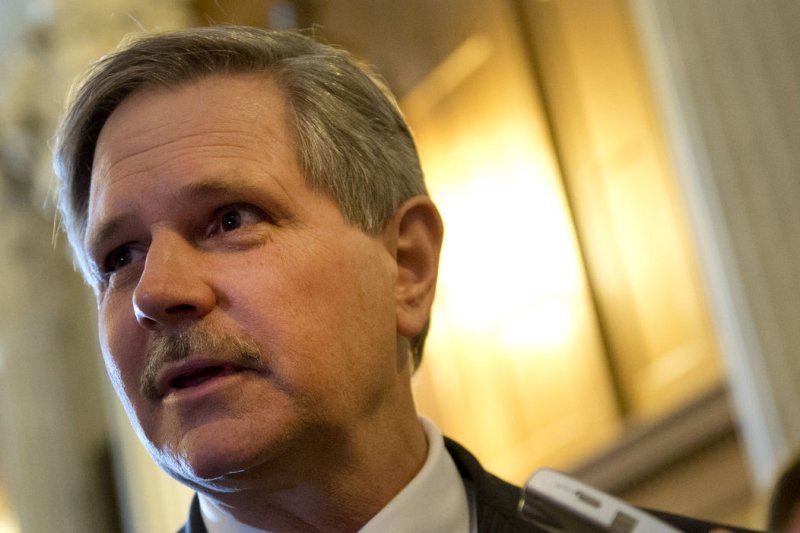Sen. John Hoeven, R-N.D., calls for an energy policy that's focused on North American abundance. File photo by Kevin Dietsch/UPI |
License Photo
BISMARCK, N.D., Oct. 14 (UPI) -- North American economies have a chance to buffer against overseas oil shocks by focusing their efforts on domestic trade, North Dakota Sen. John Hoeven said.
North Dakota is the No. 2 oil producer in the nation, behind Texas. Hoeven told an energy conference in Bismark regional economies could get a lift by breaking away from the foreign market.
"America has for too long depended on foreign energy and global markets that we have little to no control over to provide our country with energy," he said.
Crude oil prices spiked last week in a partial response to Russian military intervention in Syria. The White House said the Kremlin was operating from a position of weakness by entering the Syrian crisis in an effort to influence a weakened oil market that's hurting Russia's economy.
U.S. crude oil imports, however, are on the decline. Data from the U.S. Energy Information Administration show total crude oil imports of 7.1 million barrels per day for the week ending Oct. 2 were down by 486,000 bpd from the previous week. The four-week average for imports is down 3.3 percent year-on-year.
Hoeven is among the growing list of Republican leaders calling for an end to a 40-year-old ban on U.S. crude oil exports enacted by Arab members of the Organization of Petroleum Exporting Countries. Supporters of lifting the ban say it's an opportunity to exploit what they see as an era of U.S. oil abundance.
"Lifting the ban on crude oil exports, empowering states to develop their energy resources and partnering with allies like Canada can help to free us from our dependence on the Middle East and other volatile parts of the world for energy," Hoeven said from Bismark.
EIA data show the United States imports most of its oil from Canada, though imports for the week ending Oct. 2 were down 14.5 percent from the previous week. Imports from Saudi Arabia, the No. 2 exporter to the United States, for the week were up 9.3 percent.















